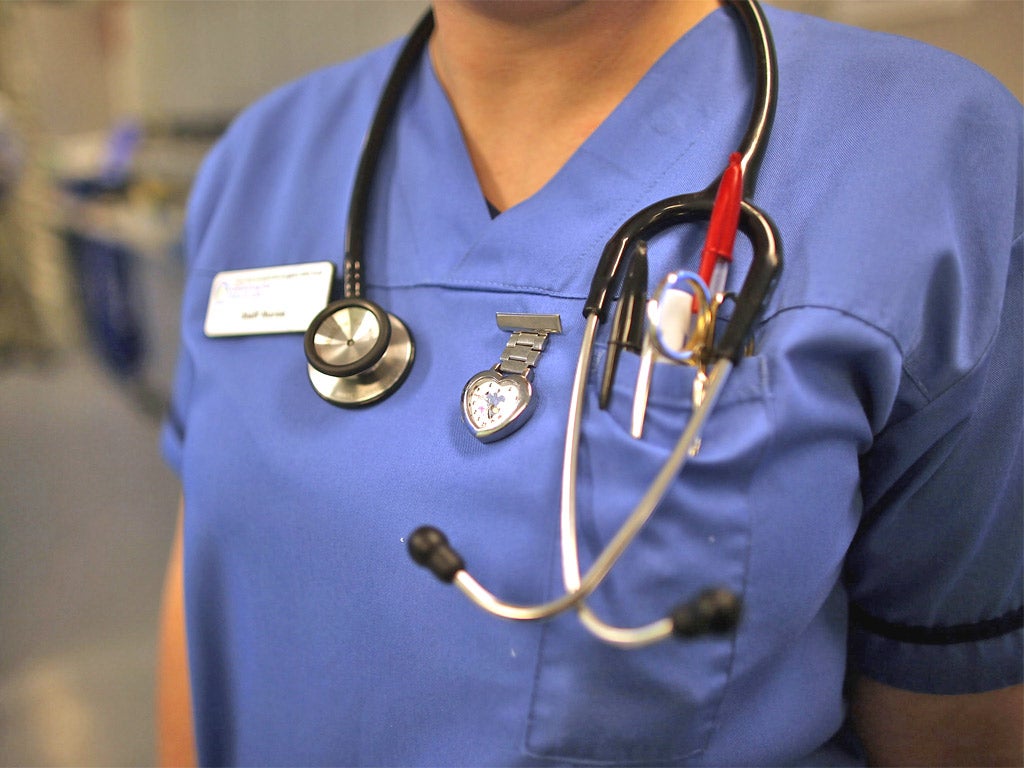Fewer nurses educated to degree level putting patients' lives at risk, study finds
Every 10 per cent increase in the number of nurses who hold a degree is linked with a seven per cent decrease in the risk of death

Your support helps us to tell the story
From reproductive rights to climate change to Big Tech, The Independent is on the ground when the story is developing. Whether it's investigating the financials of Elon Musk's pro-Trump PAC or producing our latest documentary, 'The A Word', which shines a light on the American women fighting for reproductive rights, we know how important it is to parse out the facts from the messaging.
At such a critical moment in US history, we need reporters on the ground. Your donation allows us to keep sending journalists to speak to both sides of the story.
The Independent is trusted by Americans across the entire political spectrum. And unlike many other quality news outlets, we choose not to lock Americans out of our reporting and analysis with paywalls. We believe quality journalism should be available to everyone, paid for by those who can afford it.
Your support makes all the difference.Patients are more likely to die after routine surgical procedures at hospitals with fewer nurses educated to degree level, a large European study has found.
An analysis of more than 400,000 patient records also found that hospitals where there were fewer patients per nurse had lower death rates.
New nurses in the UK have required a degree since last year.
The study, the largest investigation of nursing and hospital outcomes in Europe to date, was carried out by a number of universities in Europe and the US, and is published in The Lancet medical journal today.
It found that every extra patient added to a nurse’s workload increases a patient’s chance of dying within 30 days of being admitted for surgery by seven per cent. However, every 10 per cent increase in the number of nurses who held a degree was linked with a seven per cent decrease in the risk of death.
Staffing levels and levels of nurse education varied significantly between countries. In England, 28 per cent of nurses were educated to degree level – the second lowest of the nine countries analysed. In Norway and Spain all nurses are educated to degree level.
The average nurse to patient ratio in England was 8.8 patients per nurse – higher than the best performers Norway, with 5.2, and Ireland, with 6.9.
Dr Peter Carter, chief executive and general secretary of the Royal College of Nursing said the findings vindicated the UK’s decision to educate all new nurses to degree level.
“Modern medicine means that a nurse’s role is far more technical and requires complex decision making which demands degree level education as well as the practical experience which currently makes up at least half of a nursing degree,” he said.
Join our commenting forum
Join thought-provoking conversations, follow other Independent readers and see their replies
Comments